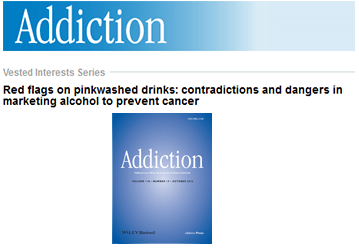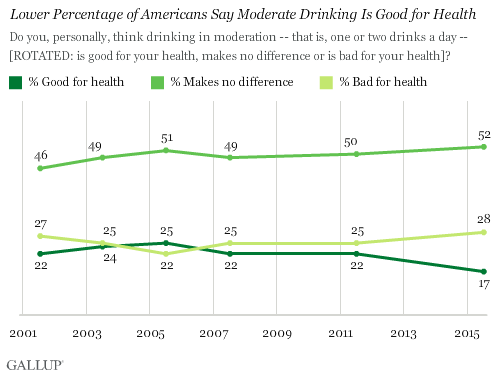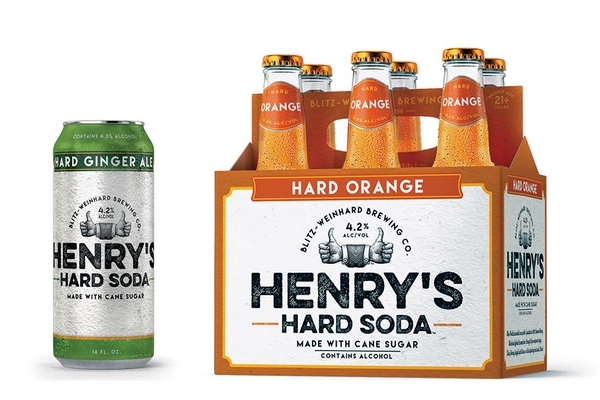Blog
Red flags on pinkwashed drinks: New article & AJ brief
- Details
- Created: Monday, September 14 2015 06:11
September 14, 2015

See the press release with quotes from the authors here.
Go to the article, Red flags on pinkwashed drinks: contradictions & dangers in marketing alcohol to prevent cancer.
Read the Alcohol Justice brief summarizing the pinkwashing study.
Many Americans reject "health benefits of alcohol" myth
- Details
- Created: Friday, September 04 2015 17:11
September 4, 2015
A recent Gallup poll indicates that a nearly a third of Americans believe moderate drinking is bad for one’s health. The same poll found that less than 20% of Americans believe alcohol is good for their health - the lowest percentage researchers have seen in years. Despite Big Alcohol funding researchers to attempt to produce positive health findings about drinking, the amount of people who believe the industry "drinking is good for your health" line has consistently decreased.
More and more of us are considering the evidence shared by the World Health Organization, the Center for Disease Control and Prevention, and other public health organizations:
- Alcohol is a leading cause of health problems and harm worldwide, and contributes to more than 200 diseases and injury-related health conditions.
- Alcohol poses more disease burden than tobacco and other drugs in areas of the globe including Africa, the Americas, and the Western Pacific.
- Alcohol causes death and disability relatively early in life. About 25% of the total deaths for 20 - 39 year olds are alcohol-attributable.
- Drinking as little as 1.5 drinks/day accounts for up to 35% of alcohol-attributable cancers in the U.S. Women who engage in light to moderate
drinking are at greater risk for alcohol-related cancers, particularly breast cancer.
The costs of alcohol-related harm (including injuries, noncommunicable disease, infectious diseases such as HIV and tuberculosis, mental and emotional disorders, deaths, and years of life lost) are both significant and avoidable. As leading alcohol policy researchers recently suggested, the hypothesis of health benefits from alcohol consumption should no longer play a role in policy-making.
Hard soda, the new alcopop
- Details
- Created: Thursday, August 13 2015 15:45
September 4, 2015

These flavored alcoholic beverages continue the sugary, foamy, colorful, inexpensive tradition of earlier alcopops, and in some ways, perhaps even more so. They closely resemble their alcopop counterparts as well as nonalcoholic soda, and like alcopops have the potential to encourage youth consumption and lead to alcohol-related harm.
MillerCoors and its hard soda line leans heavily on statements that the drink is made with cane sugar, deeming it as a better-for-you ingredient in an alcoholic beverage. Ironically, sodas and juice have become less popular at the same time that many producers are making and promoting alcoholic products that look and taste like soda. More than 60% of Americans recently reported that they avoid soda due to fears of high calories and sugar content with links to obesity and diabetes, and 50% avoided sugar for the same reasons.
Visit our Alcopop-Free Zone® campaign page to learn more about banning sales of youth-oriented products.
More Articles ...
Subcategories
Help us hold Big Alcohol accountable for the harm its products cause.
| GET ACTION ALERTS AND eNEWS |
STAY CONNECTED    |
CONTACT US 24 Belvedere St. San Rafael, CA 94901 415-456-5692 |
SUPPORT US Terms of Service & Privacy Policy |


